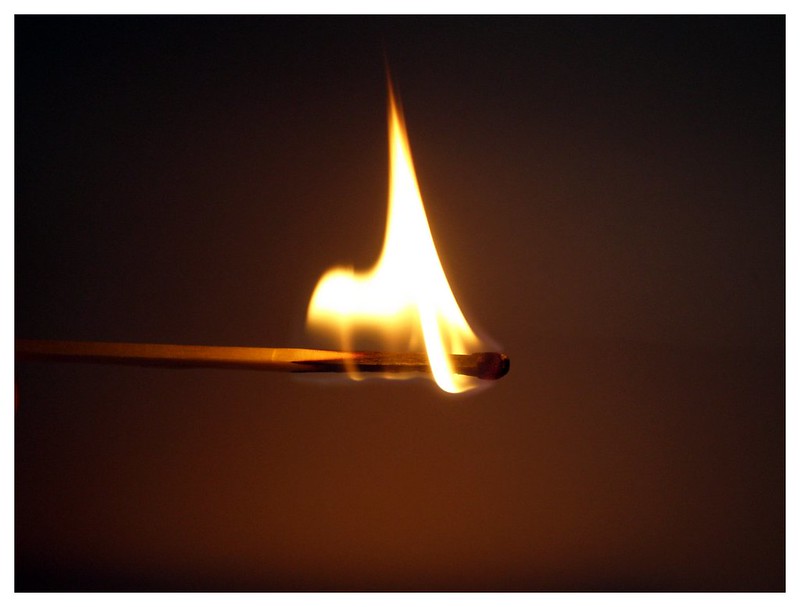
Alan Alda has come up with an excellent contest for scientists:
Answer the question, “What is a flame?”
Here’s the catch. The audience for the answer is 11-year-olds. Writing this week in Science (free pdf), Alda recalls how he asked this question to his science teacher when he was 11. The answer he got was, “It’s oxidation.”
Accurate, but not enlightening. This, of course, is a challenge that science writers face every day–how to use everyday language to convey insights that scientists describe to each other and students with precise, but often obscure, terminology.
It’s not easy for experienced writers to do this, and it can be even harder for scientists who are just starting to communicate to a broad audience. When I teach workshops for science graduate students, I force them to do without a long list of jargon. (The Index of Banned Words) I want them to think of plain-English alternatives and mind-lifting metaphors instead.
It can be a struggle for them to resist those words. The most vivid way I can illustrate the struggle is to pick someone at random at a workshop and ask, “What do you do?”
Simple enough to ask, but remarkably hard to answer. All the people I’ve picked have been investigating fascinating stuff, from subconscious priming to nanotechnology to coral reefs. And yet they manage to give me answers that are both boring and vague–and peppered with those banned words. So I just keep asking them to try again until we get to the heart of things–an answer that’s accurate, but also conveys to a non-scientist why their research is interesting, important, and inspiring enough to keep them working insane hours on it.
Alda has thought a lot about these issues as well; he’s on the advisory board of the Center for Science Communication at Stony Brook University. And he hopes, through his “Flame Challenge” to get more scientists to think about them as well. Here are the rules for his contest:
1. Answer the question “What is a flame?” in a way an 11-year-old will find intelligible and maybe even fun.
2. Answers will be screened for accuracy by scientists, then judged by a panel of 11-year-olds.
3. Answers can be submitted through April 2, 2012. [Click here for the entry form.]
4. The winning entry will be unveiled at a special event at the World Science Festival in New York in June. The winner will get VIP tickets to the Festival, along with a Flame Challenge T-shirt, and the gratitude of a nation of 11-year-olds.
5. Finalist entries, as well as the winning entry, will be posted on the Flame Challenge website:www.flamechallenge.org
6. Entries can be written, spoken (on video), or told through graphics.
7. There is no limit on length, but remember — brevity is the soul of wit, particularly when the 11-year-old has a cell phone, an X-Box, a Facebook habit, etc.
May the best explanation win…
[Image:Photo by qisur on Flickr, via Creative Commons]
Originally published March 4, 2012. Copyright 2012 Carl Zimmer.